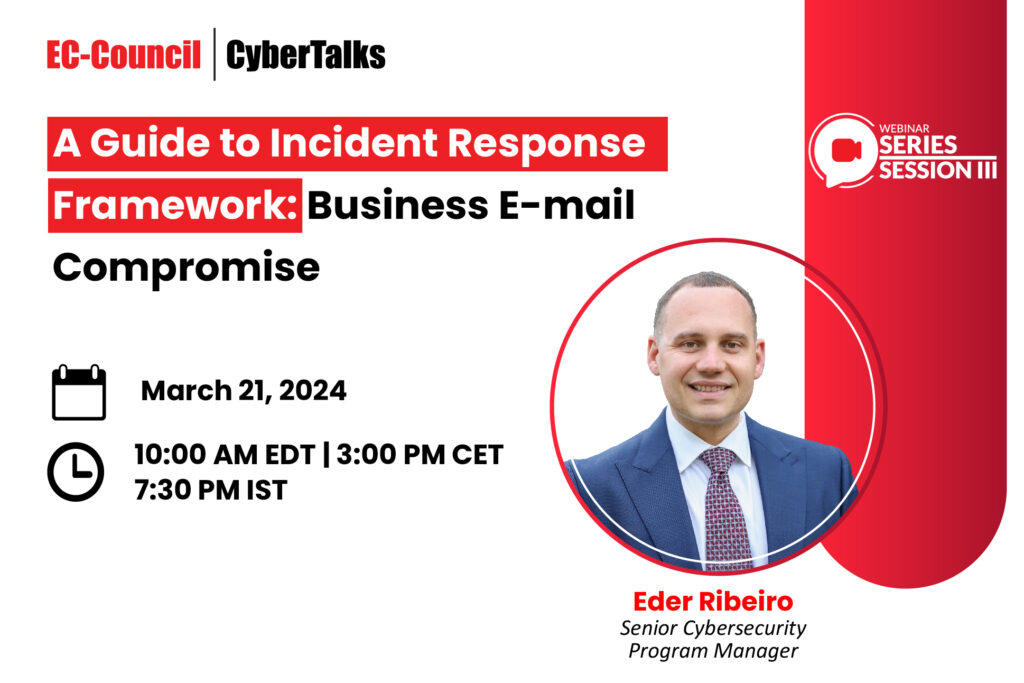Date: March 21, 2024
Time: 10:00 AM EDT | 3:00 PM CET | 7:30 PM IST
Topic: A Guide to Incident Response Framework: Business E-mail Compromise
Watch Now
Abstract: This session focuses solely on one of (if not the most) common cyber Incident Responders (IRs) encounters today. Business E-mail Compromises (BEC) happen every day to organizations of every imaginable size globally. In this session, we will cover a myriad of details about BEC’s, such as:
- What is Business E-mail Compromise (BEC)?
- Most common types of scenarios that make up a BEC case.
- How do BECs usually happen?
- Why they happen/threat actor reasoning.
- What common remediation is required?
- Risk considerations.
- What should you advise your client during and after a BEC?
Key takeaways:
- Overview of BEC cases
- Deep dive into BECs
- Common remediation
- Key considerations
Speaker:
 Eder Ribeiro, Senior Cybersecurity Program Manager
Eder Ribeiro, Senior Cybersecurity Program Manager
Bio: Eder graduated from Roger Williams University School of Law, earning his Juris Doctor. He has also earned a Master of Science in Cyber Security. He has led TransUnion’s Incident Response Forensics (IRF) team over the last six years. In his “leading from the front” style, Eder has led the IRF team through thousands of cases ranging from unauthorized cryptocurrency mining, ransomware, business e-mail compromises, and much more.
Eder also has 16 years of experience in the United States Rhode Island Army National Guard, where he led troops as a team leader on a combat deployment in the Kandahar Province in support of Operation Enduring Freedom. Eder is a certified mediator and performs duties at the state headquarters level. Eder’s expertise includes solution/product creation, program development and expansion, threat assessment, risk mitigation, security process improvement, privacy compliance, and contract drafting. He has worked with over 1,000 organizations in his current capacity, helping them determine and react to the nature of their security incident breaches and determining the best course of action to recover to safe operations and meet compliance obligations.
*Examples, analysis, views and opinion shared by the speakers are personal and not endorsed by EC-Council or their respective employer(s)








